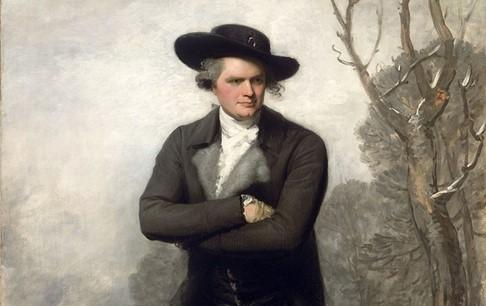WEST POINT—The conclusion of a three-day trial of West Point Cadet Lucas Saul charged with two counts of sexual assault and one count of sodomy resulted in his acquittal at West Point on Jan. 22. While Saul was found innocent, critics of the army, including some within its ranks, say there is a general problem with sexual misconduct in today’s service.
A five-member panel, consisting of members of the U.S. Military Academy’s staff and faculty, returned a verdict of not guilty for Saul, class of ‘15, who was charged with sexually assaulting a woman classmate.
The charges alleged that Saul engaged in inappropriate contact with a woman cadet without her consent on three separate occasions both on and off West Point property between March and December 2012.
Saul was charged with one violation of Article 120 Uniform Code of Military Justice (Aggravated Sexual Assault), one violation of Article 120 (Sexual Assault), and one violation of Article 125 (Sodomy).
“West Point takes all allegations very seriously,” said Director of Public Affairs Lt. Col. Chris Kasker. “In this particular case, a court-martial was held to find the truth and the panel has determined Cadet Saul is innocent of all charges. All the facts were presented in a full and open hearing and the issue was resolved in a manner consistent with military law and due process requirements.”
Saul has been on administrative leave since Aug. 17, 2015. There is no word on whether he will return to the academy.
Efforts to Improve
The allegations against Cadet Saul occur within the context of an ongoing controversy about how the military handles sexual assault allegations. The military has responded to criticism by seeking to improve. For instance, a procedure laid out in the Military Justice Improvement Act is designed for sexual assault incidents.
That act is designed to reduce the fear and retaliation victims often receive when reporting an assault. The legislation leaves the decision to prosecute to independent, trained, professional military prosecutors.
A victim in military service may file a sexual harassment or assault complaint informally for less severe incidents. If medical treatment or legal assistance is required, the survivor may file an unrestricted report. Involvement of law enforcement or going up the chain of command may happen.
A SHARP (Sexual Harassment/Assault Awareness and Reporting Program) specialist ensures the victim receives appropriate care. If a victim wants to make a report but without an official investigation, they may file a restricted report to receive medical treatment, legal assistance, and counseling as needed. The assailant will not be punished under this procedure.
An example of how the army is trying to get a handle on sexual harassment occurred on Jan. 11 at a summit of non-commissioned officers held at Joint Base Elmendorf-Richardson in Alaska. The event was part of the SHARP program.
The Defense Media Activity website reports that Command Sgt. Maj. Terry Gardner gave an unfiltered, honest, and harsh look at sexual misconduct in the military. “It is my hope that these NCOs are really inspired to change the culture,” Gardner said.
“We have so many soldiers that want to do the right thing, but they don’t know what right looks like,” said Sgt. Maj. Stephen Bowens, sergeant major of Headquarters Department of the Army SHARP Program, in the Defense Media Activity article.
Monique Ferrell, director, Headquarters Department of the Army SHARP Program Office at the Pentagon, was a speaker at the Alaska summit who advocated for the program “Not in my Squad.”
The “Not in my Squad” motto pushes the prevention of sexual harassment and assault down to the junior levels where even lower-enlisted personnel can feel empowered to correct the behavior of those around them.
Continuing Problem
While the army has been making efforts to address problems of sexual misconduct, critics say it continues to have a significant problem.
The highly-acclaimed 2012 documentary “The Invisible War” features interviews with military veterans who recount their sexual assaults. They speak of an unfair justice system, reprisals, blocks to advancement, and forced expulsion from service.
Senator Kirsten Gillibrand (D-NY) has made the issue of sexual assault in the military a centerpiece of her tenure as senator. On her website, Gillibrand says 62 percent of women in the military who report an assault experience some kind of retaliation. “The amount of retaliation remains unchanged from 2012, while the estimated number of unwanted sexual contacts remains at 2010 levels, an average of 52 new cases every day,” Gillibrand reports.





